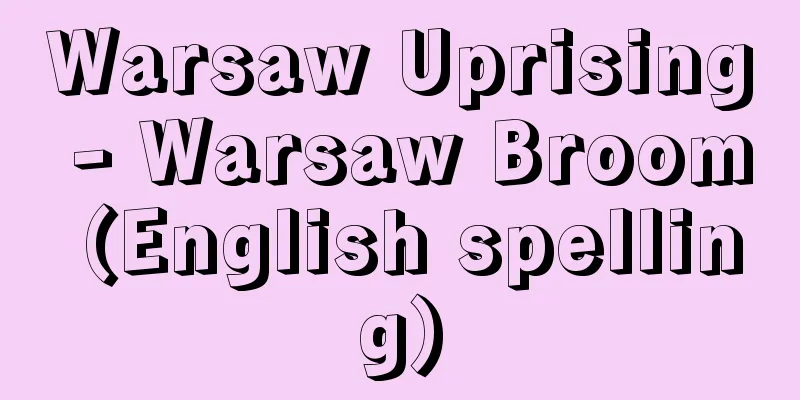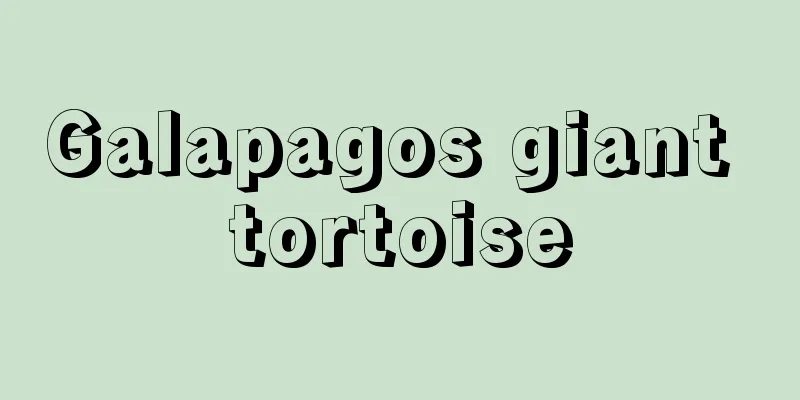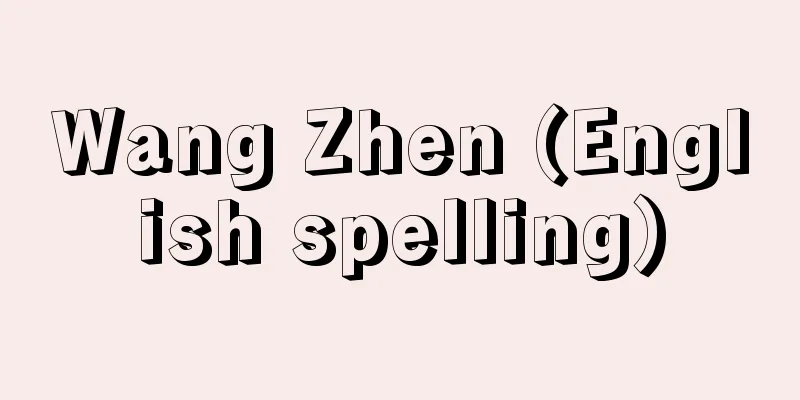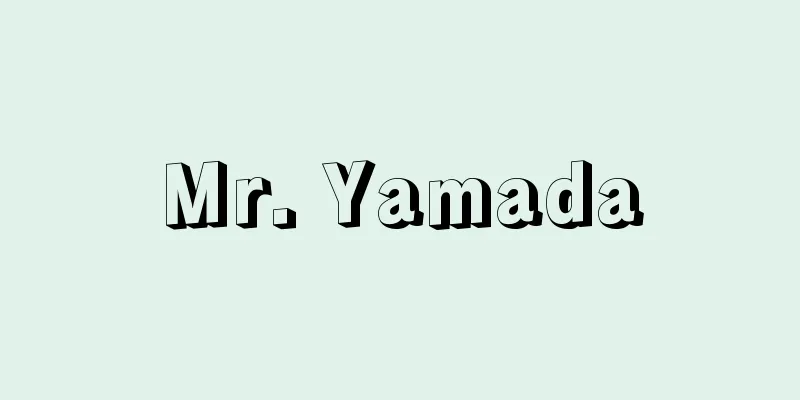Warsaw Uprising - Warsaw Broom (English spelling)

|
A rebellion between August 1 and October 2, 1944, during World War II, in which Polish resistance organizations led by the Home Army and the citizens of Warsaw participated, seeking liberation from Nazi German rule. The London government in exile, anxious about the approach of the Soviet army and the establishment of pro-Soviet governments in the liberated areas, ordered the Home Army commander T. Br-Komorowski to start an uprising in an attempt to restore its authority both at home and abroad. The rebel army of about 50,000 successfully liberated the city center, but in early August, the Soviet army stopped its advance on the opposite bank of the Wisla River that runs through Warsaw and turned toward Romania, and the German army regained its footing and forced the rebel army into a defensive position. The British and Americans were unable to take any relief action beyond dropping supplies from their air force planes to Warsaw, which was far from their own front lines. On the other hand, the Soviet Union, although militarily anti-German, did not take a favorable attitude toward the uprising movement, which was politically anti-Soviet, and refused to provide aid for a long time. Finally, in mid-September, they destroyed the remaining German bridgehead across from Wisla and began dropping aid supplies, but they did not take any further action. Thus, the uprising forces were virtually left to their own fate and were forced to surrender. The failure of the uprising, with 200,000 casualties and the complete destruction of the city of Warsaw, weakened the foundations of the government-in-exile, but at the same time resulted in the cultivation of lasting anti-Soviet sentiment among the Poles. Source: Encyclopaedia Britannica Concise Encyclopedia About Encyclopaedia Britannica Concise Encyclopedia Information |
|
第2次世界大戦中の 1944年8月1日から 10月2日にかけてナチス・ドイツの支配からの解放を求めて国内軍を中心とするポーランドの抵抗組織がワルシャワ市民の参加のもとに起した反乱。ソ連軍が接近し,解放地域に親ソ政権が樹立されたことを焦慮したロンドン亡命政府は,内外における権威を回復しようとして国内軍司令官 T.ブル=コモロフスキに蜂起を指令した。蜂起軍約5万は首尾よく市の中心部を解放したが,8月上旬にワルシャワ市を貫流するウィスワ川の対岸でソ連軍が進撃を停止し,ルーマニア方面に転進するに及び,ドイツ軍は態勢を立直して蜂起軍を守勢に追込んだ。イギリス,アメリカは自己の戦線から遠く離れたワルシャワに対して空軍機による物資の投下以上の救援行動をとりえなかった。他方ソ連は,軍事的には反ドイツであるけれども政治的には反ソの蜂起運動に対して好意的な態度を取らず,長い間援助を拒んだ。ようやく9月中旬に残されていたウィスワ対岸のドイツ軍の橋頭堡を打落し,援助物資の投下を開始したが,それ以上の行動には出ようとしなかった。こうして蜂起軍は事実上自己の運命にゆだねられ,屈服を余儀なくされた。蜂起の挫折は 20万の犠牲とワルシャワ市の徹底的な破壊を伴い,亡命政府の基礎を弱めたが,同時にポーランド人の間に永続的な反ソ感情をうえつける結果となった。
出典 ブリタニカ国際大百科事典 小項目事典ブリタニカ国際大百科事典 小項目事典について 情報 |
>>: University of Warsaw (English: Uniwersytet Warszawski)
Recommend
Peribsen
The king was considered to be the incarnation of ...
God's mouth - Kamiguchi
〘noun〙 An oracle delivered by a shrine maiden who ...
Epallaginidae
…The Yaeyama Hanadaka dragonfly, a rare species f...
New York [State] - New York
A state in the northeastern United States. Abbrevi...
Qin Bang-xian
[Live] Guangxu 33 (1907). Jiangsu, Wuxi [Died] Apr...
denar (English spelling)
… The Sassanid monetary system showed many new fe...
Nagano Shuzen
A samurai of Hikone Domain and a scholar of Japan...
Absorption edge
…In general, the absorption coefficient μ decreas...
Qutlugh Boyla (English spelling) Qutlugh Boyla
…However, the Tenguri Khan, who took the throne o...
Shuichi Kando
...This Zenju was so famous that he even re-estab...
Bull kelp
A seaweed of the Laminaria family of the Phaeophyc...
Oxyful
A disinfectant from Daiichi Sankyo Co., Ltd. The m...
Common area expenses
Expenses incurred by one of multiple creditors of ...
Three Temples of Hezhou
...As a result of the Chokyo Rebellion, the Kaga ...
Intsuji Temple
...The southern part is a hilly plateau that is u...









![Aniemachen [Mine] - Aniemachen](/upload/images/67cf3320e7b65.webp)